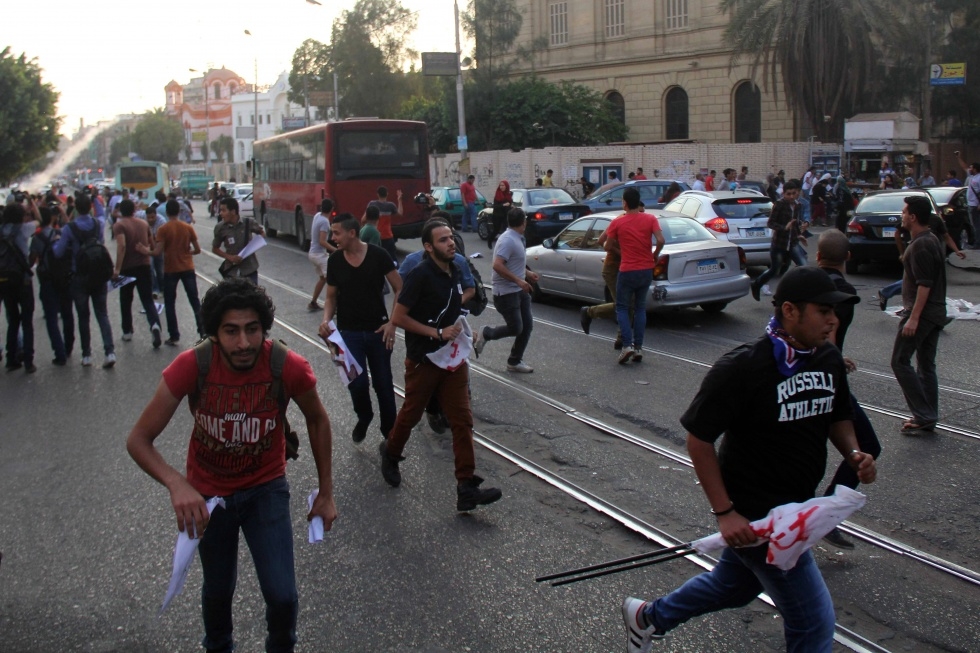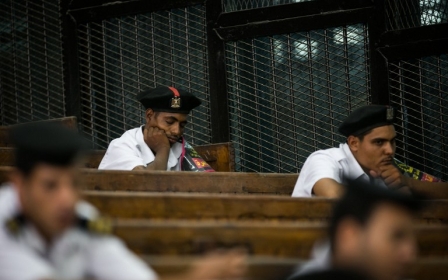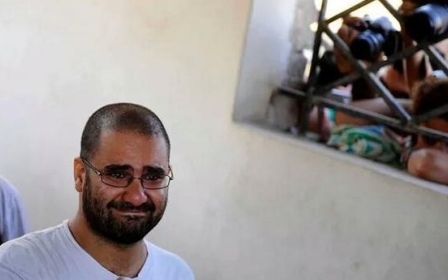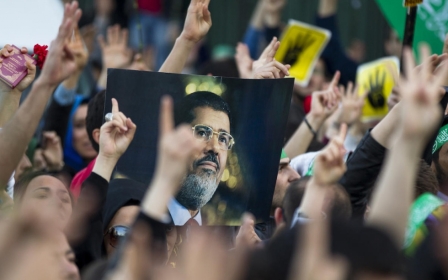Amnesty International demands release of Egyptian protest law activists

Amnesty International has called for the release of more than 20 demonstrators, including two prominent female activists, who were detained in June for defying Egypt's controversial law against protests.
Security forces arrested the group on 21 June after dispersing a demonstration near Etihadeya presidential palace in Cairo.
The group had been calling for the release of political detainees and the scrapping of the protest law, which came into force in November 2013 and gives security forces complete power to ban protests and disperse peaceful demonstrations using force.
Among those arrested in June were women's rights defender Yara Sallam, who Amnesty said did not take part in the June protest, and activist Sanaa Seif, who has been on hunger strike since August 28.
All 23 defendants, including Sallam, Seif and two photographers, will be brought to court on Saturday after 84 days in pre-trial detention, to face charges related to breaking the protest law.
To coincide with the resumption of the trial on Saturday, a group of journalists is beginning a three-day hunger strike and sit-in at the Journalists' Syndicate in downtown Cairo, in solidarity with people detained under the law.
Translation: Journalists against the protest law in sit-in at the Journalists' Syndicate, now
In a statement released on Friday, Amnesty described all the detainees as "prisoners of conscience.”
"The case provides the latest proof of the Egyptian authorities' determination to quash peaceful protest and stifle all forms of dissent," said Philip Luther, head of Amnesty's Middle East and North Africa Programme.
"No one should be detained for peacefully exercising the right to freedom of expression and assembly."
Luther called the charges against Sallam "farcical", suggesting she had been detained because of her human rights work with the Egyptian Initiative for Personal Rights (EIPR).
EIPR issued a press release on Thursday calling for the repeal of the protest law, dubbing it “unconstitutional.”
After the arrests in June, one defendant was released and a minor had his case referred to a juvenile court.
They face charges including damage to property and taking part in a gathering of more than five people with the aim of threatening "public peace.”
New MEE newsletter: Jerusalem Dispatch
Sign up to get the latest insights and analysis on Israel-Palestine, alongside Turkey Unpacked and other MEE newsletters
Middle East Eye delivers independent and unrivalled coverage and analysis of the Middle East, North Africa and beyond. To learn more about republishing this content and the associated fees, please fill out this form. More about MEE can be found here.




